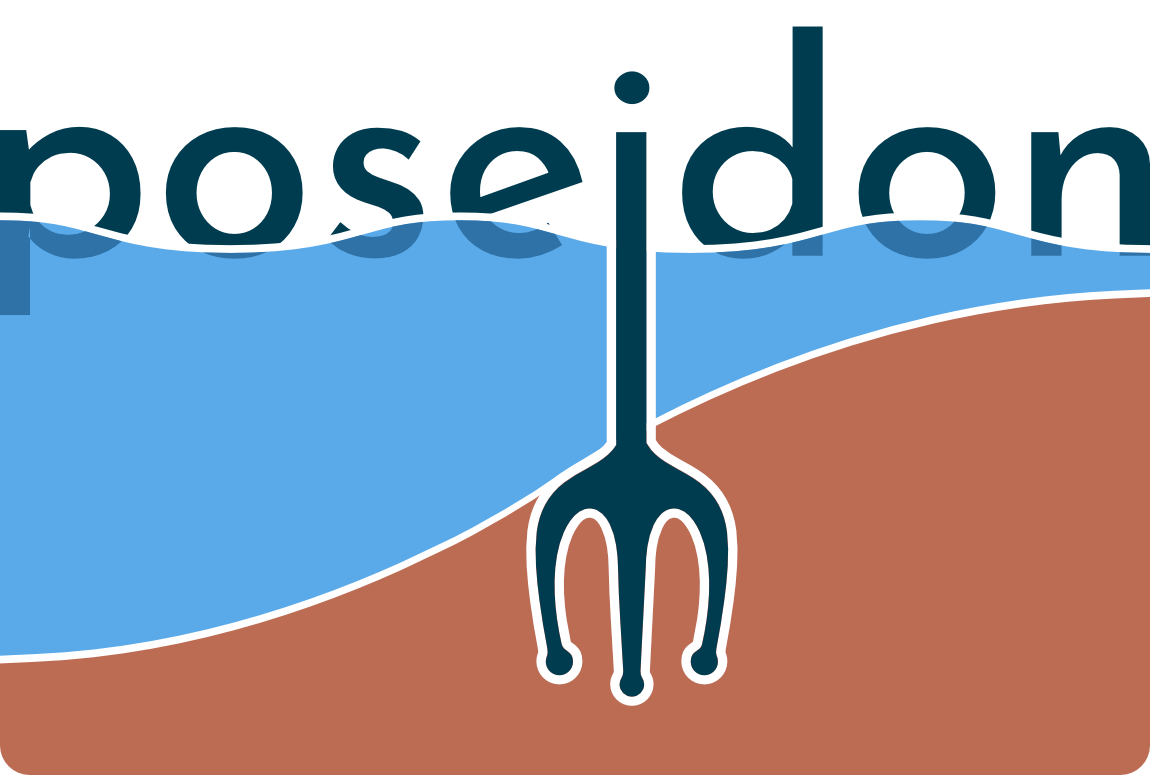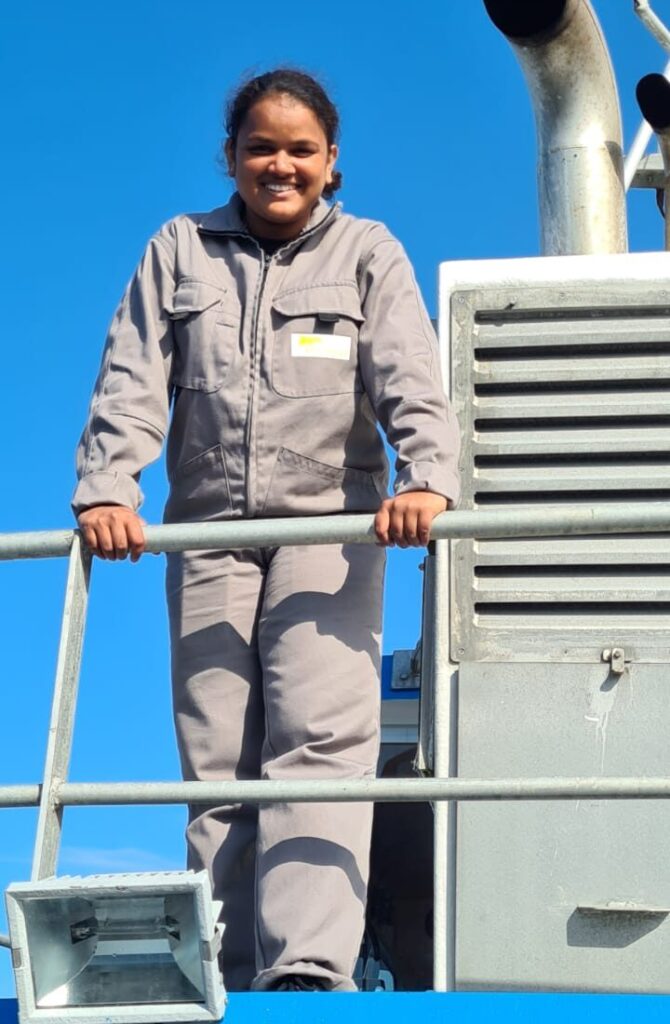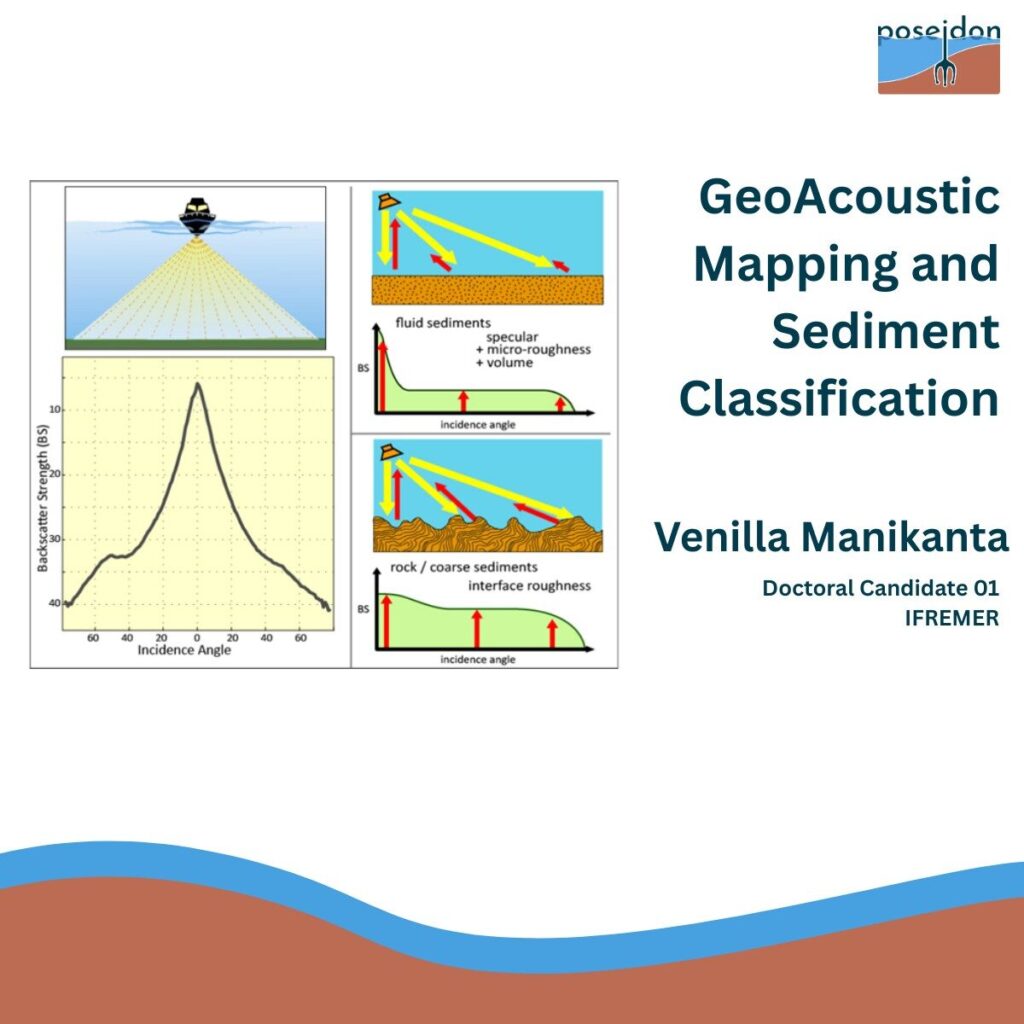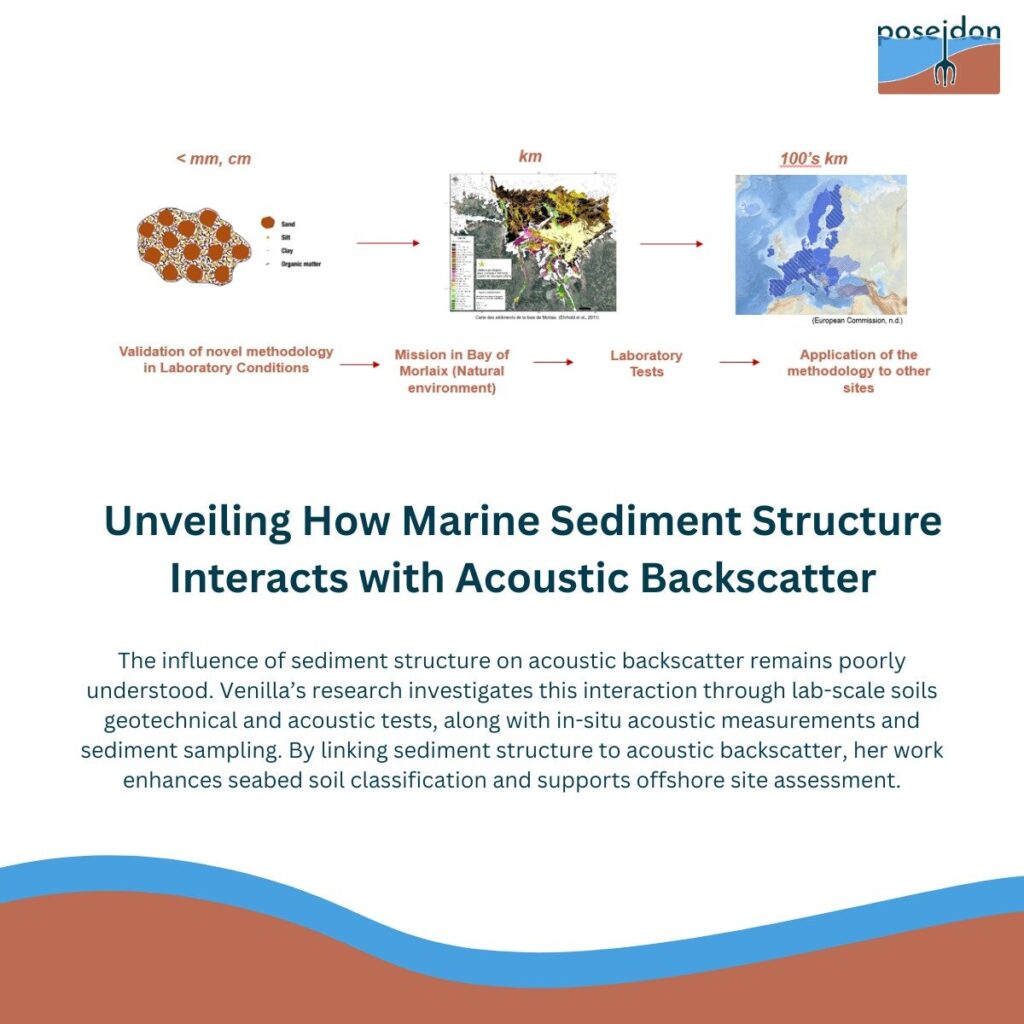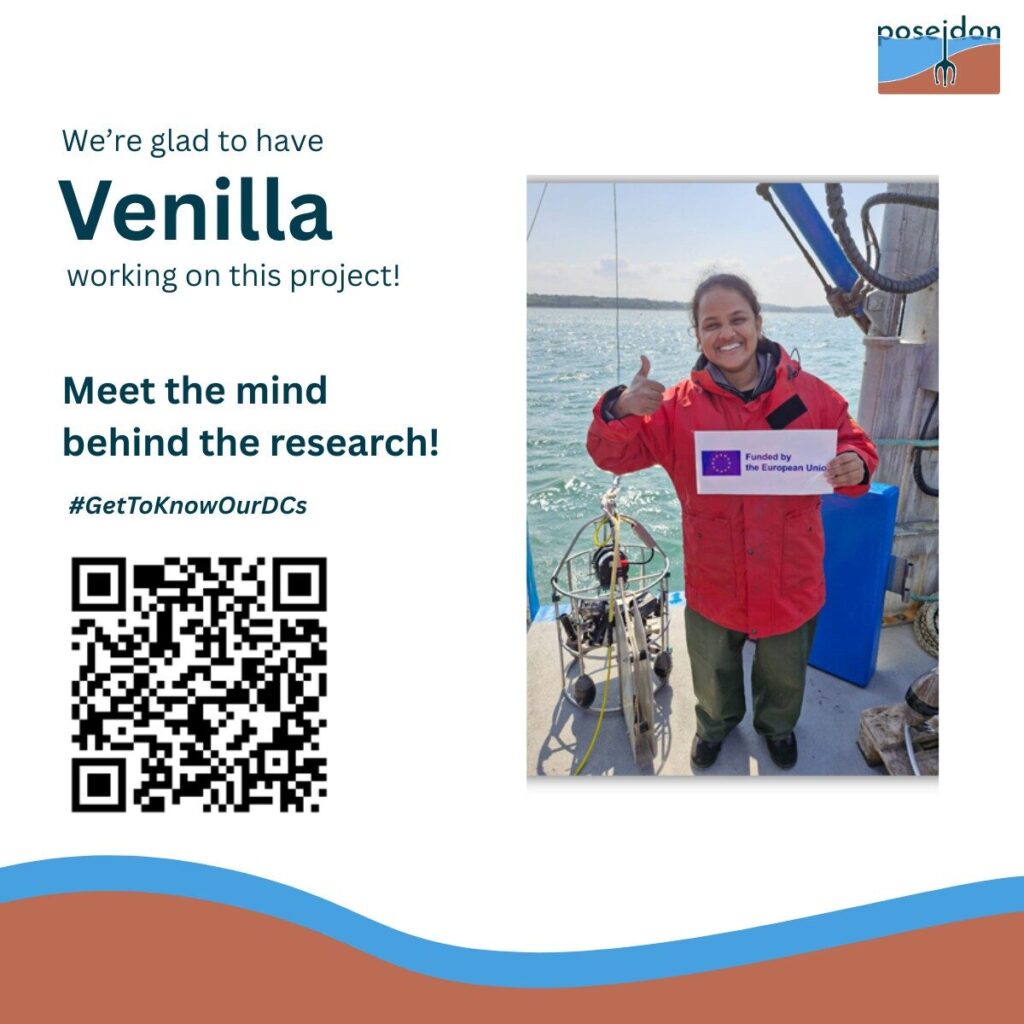👋 About Me
Hi, I’m Venilla Manikanta, a geotechnical engineer from India with a deep curiosity about the world beneath the sea surface. My academic path began at SJEC, Mangalore, where I built a strong foundation in civil engineering, and grew into a passion for geotechnical engineering during my Master’s at NITK Surathkal. While I enjoyed exploring soil and rock mechanics, I was fascinated by their applications in the offshore domain—how seabed properties influence subsea infrastructure, energy projects, and marine ecosystems. This led me to France, where I am now pursuing a PhD at IFREMER and Université de Bretagne Occidentale (UBO), specializing in marine geosciences.
🌊 About My Project
At IFREMER, my research centers on geoacoustic mapping and sediment classification, with a focus on linking acoustic backscatter signals to the physical properties of seabed sediments. In particular, I investigate how void ratio, as a proxy for sediment structure, can inform and improve soil classification frameworks.Through a combination of controlled laboratory experiments and in-situ field measurements, I examine the relationship between acoustic backscatter intensity and void ratio. The Bay of Morlaix serves as the primary study area, thanks to its well-known and geologically diverse environment to test and validate this methodology in a natural setting. By developing a robust interpretive framework that connects geoacoustic signatures with sediment structure, this research contributes to more accurate seabed classification, enhances our understanding of sediment dynamics in offshore environments, and provides valuable insights for marine infrastructure planning and geohazard risk assessments.
🌍 Why POSEIDON?
When I began searching for PhD opportunities in Europe, I wasn’t just looking for a project, I wanted a challenge that felt meaningful. As someone passionate about sustainability and resilient infrastructure, the POSEIDON project immediately stood out. It offered exactly what I was seeking: a technically demanding topic with real-world impact, built on strong international collaboration.
Since joining POSEIDON, I’ve had the opportunity to work with researchers from across Europe, exchanging not only scientific knowledge but also diverse perspectives shaped by our different experiences. For me, POSEIDON is more than just a research network—it’s a platform where I can apply my engineering mindset to solve complex marine challenges, while also learning to collaborate, adapt, and grow as a scientist in a global setting. This journey is shaping me into a researcher who not only understands the complexity of the seabed but is also committed to contributing to a safer, smarter, and more sustainable offshore future.
